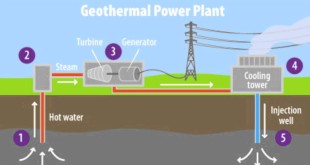Introduction: Climate change is no longer an environmental buzzword; it’s a global security imperative demanding immediate attention. As climate change accelerates and environmental challenges intensify, the world is witnessing a shift in the dynamics of geopolitical landscapes, military strategies, and technological innovations. The once-distant threat is rapidly manifesting in tangible …
Read More »Unveiling the Earth’s Secrets: The Power and Potential of Seismic Sensor Technology
Introduction: The Silent Pulse of the Earth Beneath the Earth’s surface, imperceptible vibrations create a silent pulse that, until recently, remained beyond human detection. The evolution of seismic sensor technology has granted us access to this hidden world, unraveling a wealth of information about the Earth’s dynamic processes. In this …
Read More »Earthquakes, the natural disasters that cause immense damage to life and property on Global scale, Scientists are trying to predict them
Earthquakes are one of the most devastating natural disasters that occur across the globe. They can strike without warning and cause immense damage to life and property. According to the United States Geological Survey (USGS), there are about 20,000 earthquakes annually, and around 16 of them are of magnitude 7 …
Read More »Navigating the Ethical Landscape: The Growing Imperative of Technoethics in an Era of Technological Risks
Introduction: In the ever-evolving landscape of technology, the rapid pace of innovation brings unprecedented benefits to society. In the dynamic realm of technology, scientific knowledge transforms into groundbreaking processes, materials, devices, systems, and tools. From artificial intelligence to biotechnology, advancements have propelled humanity into new frontiers. However, this power is …
Read More »Unleashing Geothermal Power: The Clean Energy Revolution Powered by Breakthrough Technologies
In the pursuit of a sustainable future, renewable energy sources have taken center stage. While solar and wind power have dominated the clean energy landscape, another mighty contender is poised to make a big breakout: geothermal energy. With recent breakthrough technologies, geothermal power is emerging as a viable, clean, and …
Read More »DARPA Launches Triage Challenge to Revolutionize Mass Casualty Incident Response
Introduction Mass casualty incidents (MCIs) pose significant challenges, requiring rapid and effective medical responses. DARPA, the Defense Advanced Research Projects Agency, has initiated the Triage Challenge (DTC) to drive innovation in addressing these complex scenarios. MCIs encompass events involving 20 or more individuals with minor injuries and can result from …
Read More »Navigating the Metaverse: Unveiling Terrorist Threats and Challenges
Introduction The concept of the metaverse has captured the collective imagination of tech enthusiasts, futurists, and even the general public. This virtual realm, a convergence of augmented and virtual reality, promises a digital utopia where we can work, play, socialize, and create, all within a boundless digital landscape. However, amid …
Read More »Navigating the Impact of Wind Farms on Radar Systems and Mitigating Interference
Introduction Wind energy is a crucial component of the United States renewable energy landscape, but its expansion poses challenges related to potential radar interference. As wind farms continue to grow, the likelihood of turbines affecting radar systems involved in air defense, weather forecasting, and national security increases. Wind turbines situated …
Read More »Advancing Law Enforcement Science and Technology Through High-Quality Education, Research, and Collaboration
In today’s rapidly evolving world, law enforcement faces complex challenges that demand innovative solutions. Science and technology have become indispensable tools in the hands of those tasked with maintaining peace and order in our communities. Law enforcement agencies play a vital role not only in holding offenders accountable but also …
Read More »Navigating the Law Enforcement Software Market: Trends and Insights
Introduction In today’s rapidly evolving world, law enforcement agencies face an increasing need for efficient, data-driven solutions to tackle complex challenges. The law enforcement software market has emerged as a crucial ally, offering innovative tools that empower agencies to better serve and protect their communities. In this article, we’ll delve …
Read More » International Defense Security & Technology Your trusted Source for News, Research and Analysis
International Defense Security & Technology Your trusted Source for News, Research and Analysis



